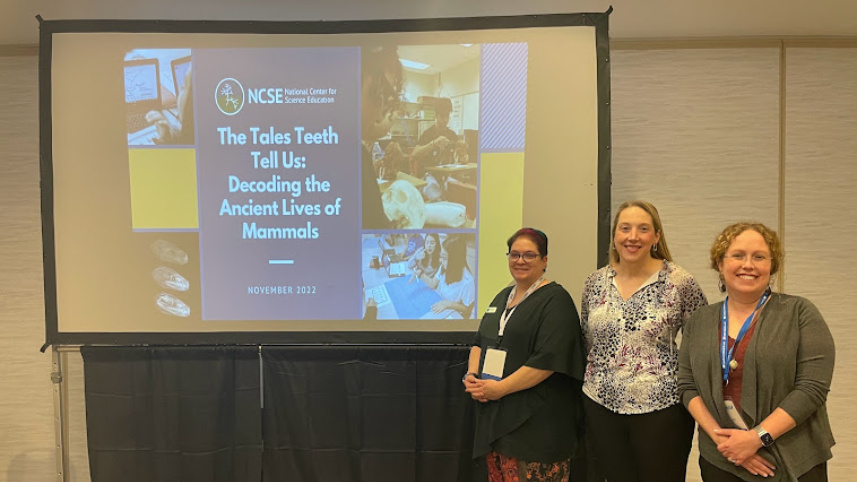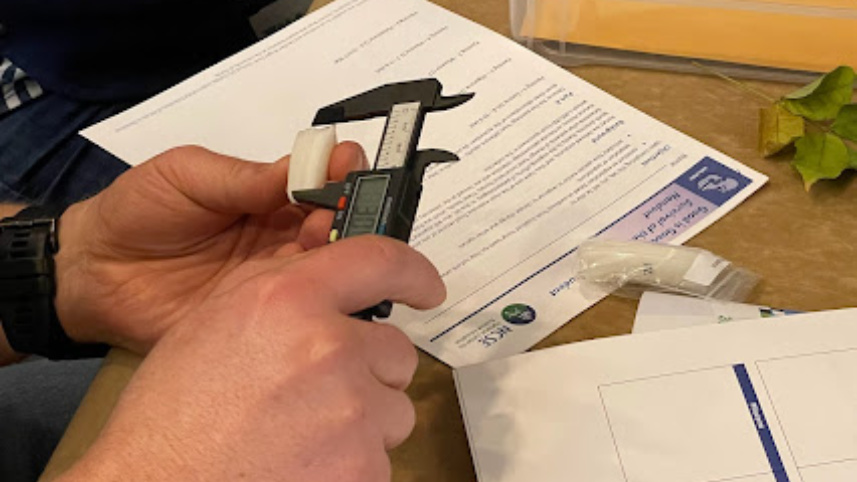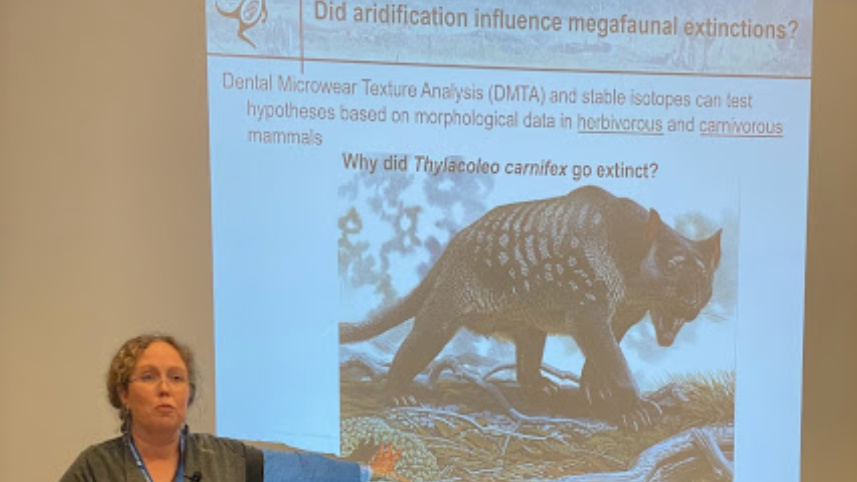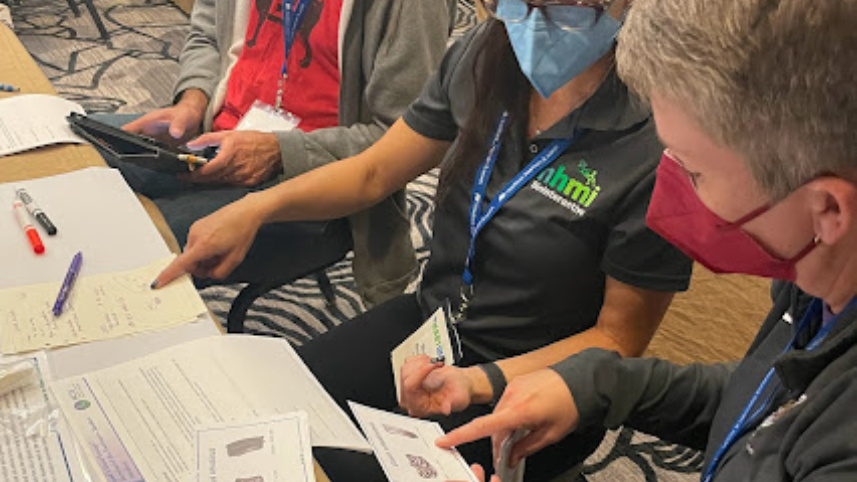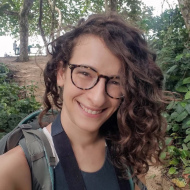NCSE staff and affiliated teachers led professional development addressing misconceptions in the nature of science, evolution, and climate change at the National Association of Biology Teachers conference in Indianapolis, Indiana, November 10–13, 2022.
Evolution Symposium
This year’s marquee event was the Evolution Symposium, coordinated and sponsored by NCSE. The symposium, titled The Tales Teeth Tell Us: Decoding the Ancient Lives of Mammals, featured a talk by Larisa DeSantis, a vertebrate paleontologist at Vanderbilt University, and a session facilitated by NCSE Teacher Ambassador Jennifer Broo and NCSE Director of Teacher Support Lin Andrews.
DeSantis, who leads the DREAM Lab at Vanderbilt University, uses paleontology to investigate how mammalian communities have evolved over time in response to climate change throughout the world. DeSantis’s talk featured information about how modern methods can give us a better understanding of the dietary behavior of dire wolves, American lions, and sabertooth cats, and also why these animals went extinct. She also spoke about the evolution of marsupial predators. Understanding how these organisms lived and died can help us to better conserve extant predator species.
Following DeSantis, Broo and Andrews shared the lesson set Broo developed for NCSE: Good is Good Enough? This lesson set uses a technique called NGSS storylining to share the evolutionary history of the horse with students, using the variation between modern and extinct species of horses as an anchoring phenomenon. Attendees had the opportunity to experience several of the activities firsthand. They used replicas of fossilized horse teeth and engaged in techniques used by scientists to gather and visualize data, then drew conclusions, to get an understanding of how the lesson set allows for students to see that populations, not individuals, change over time.


